My Proustian Madeleine Lives in the Vegetable Aisle
The high season of nostalgia. Plus, a Friday Open Thread about the foods that instantly transport us back to holidays past...
Readers,
Today we have an essay by
, who writes the wonderful newsletter. It’s a piece about food—and food aromas—acting as triggers for holiday nostalgia. It made me want to ask all of you which foods and food aromas have that effect on you.Smell and taste are strong factors for “sense memory,” something I learned about when I briefly studied Method Acting as a teen. The idea was that if you tapped into the emotions of a past experience by recalling the sensory details around it, you could more easily replicate those emotions in your performance.
Outside of acting, sense memory is a natural catalyst for nostalgia. You catch a whiff of a familiar food, and you’re instantly transported to a time in the past.
In Handy’s case, she is delivered to Thanksgivings past by the mere sight and smell of bunches of celery. For me, red plums serve as a time machine back to the Rosh Hashanah dinners of my childhood, when my mom would make her mother’s delightfully tangy/sweet plum compote. I have a new trigger, too: sea scallops now signal Christmas Eve to me, since Brian and I had to spend the last two Christmases isolating from the world while recovering from Covid, and both times made ourselves butternut squash risotto with sea scallops as our “Feast of the…one fish.” (Both times we had the ingredients delivered, contactlessly, via Instacart.)
How about you? In the comments tell us…
How old are you? What are your favorite holidays? What are the foods and food aromas that trigger your nostalgia, instantly transporting you back to holidays past? Or maybe it’s not a holiday, but some other occasion, or a place where you used to enjoy spending time. And while we’re here…feel free to share favorite Thanksgiving recipes—traditional or unconventional. (You can write them out or share links to where they live online.)
My Proustian Madeleine Lives in the Vegetable Aisle
The high season of nostalgia.
by Jolene Handy
Mad Men, the hit show about advertising’s mid-century heyday, is one I go back to again and again. It feels familiar.
When I moved to Manhattan in 1976, my first job was as a secretary at an ad agency. I shared a small, one-bedroom apartment with a college friend on 55th Street, just down the block from P. J. Clarke’s. This was latter-day “ad men” but Clarke’s was still an agency hangout at lunch and after work.
You could smell the scotch and beer and burgers the minute you walked in, and no matter how much Chanel No. 5 you wore, cigarette smoke was the fragrance you took home on your clothes and in your hair.
If you’re a devoted fan of the show—and if you’re not, I recommend watching (spoilers ahead)—you’ll recall that in the Season One finale, the main character, the dapper, damaged, genius creative director, Don Draper (as brilliantly portrayed by Jon Hamm) is presenting a new campaign to the Kodak client for “The Wheel,” a circular slide projector.
In the pitch, Don reinvents “The Wheel” in a way that leaves everyone in the room wistful and moved.
The Greek root of the word “nostalgia” he tells them, translates to “the pain from an old wound.” He commences clicking through slides of his family during the sweet, mundane moments of everyday life along with captures of special occasions: holidays, birthdays, weddings. He goes deeper into the feeling of nostalgia:
“It’s a twinge in your heart, far more powerful than memory alone.
This device isn’t a space ship. It’s a Time Machine. It goes backwards, forwards.
It’s not called “The Wheel.” It’s called “The Carousel.”
It lets us travel the way a child travels. Around and around and back home again to a place where we are loved.” — Don Draper from AMC’s Mad Men episode, “The Wheel.”
One would rightly argue that not everyone returns to a place where they are loved as they ride life’s carousel.
But the monologue captures the yearning.
There was a terrific piece earlier this year by Sarah Diamond in The New York Times (gift link: NYT ) “Looking to the Past for Early Meanings of Nostalgia.”’
In the 19th Century it was categorized as a medical condition, a severe homesickness, a melancholia.
But in the 20th Century, it had:
“…broadened to mean an everyday feeling of sentimentality or longing… a ‘symantic weakening’, a process in which a word loses intensity.”
— Grant Barrett, Etymologist in Looking to the Past for Early Meanings of Nostalgia
In other words, it became “warm and fuzzy,” a representation of a wish to return to the “‘good old days’.” It was a diminishment of the original meaning and gave the word and concept a bit of a bad rap.
But in the 21st century, nostalgia as something that can help during troubled times (look no further than all the nostalgia surrounding baking during the pandemic) is thought to be a good thing.
“From this perspective, nostalgia can be thought of as a psychological defense mechanism that we turn to when life gets difficult.”
— Clay Routledge, a psychologist who studies nostalgia, quoted in Looking to the Past for Early Meanings of Nostalgia
And we are drawn to its potent mix of bitter and sweet.
The holidays, of course, are the Olympics of nostalgia, and here they are again.
The prompts are everywhere. Which song, which ad, which pine needle will prick your finger and spirit you along on the fastest track to a spontaneous “twinge in your heart”?
For me, it’s often arrived via food — specifically, the aroma of it.
I know the whole Proust-Madeleine thing is a cliché, but it’s a valuable one. So, I’ll press on with my version of those little cakes that unleashed a stream of memories for the narrator in Remembrance of Things Past.
In the 21st century, nostalgia as something that can help during troubled times (look no further than all the nostalgia surrounding baking during the pandemic) is thought to be a good thing.
My madeleine equivalent lives in the vegetable aisle and sneaks up on me, unbidden, but not unwelcome.
I find myself in front of dozens of bunches of the most fragrant celery at the market, the kind with their leaves still attached.
This olfactory trigger puts me right back in my grandmother’s galley kitchen on Woodhaven Boulevard in Queens in the mid ‘50s through the 1960’s.
She’s wearing her housecoat over her dress and preparing the Thanksgiving or Christmas turkey for roasting, the scent of celery is everywhere, and she’s also making soup.
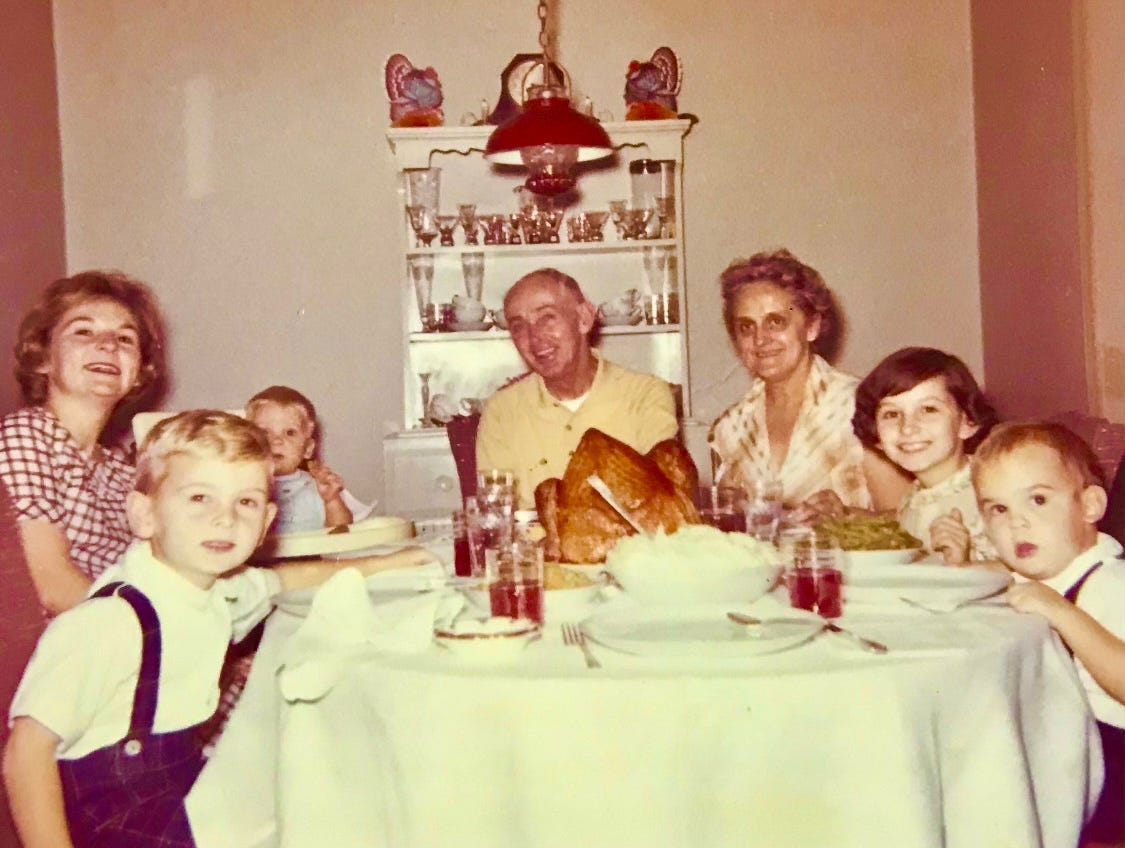
My parents are young and beautiful in this period before life got hard, and my grandfather is leaning out the wrought iron casement window in the kitchen, smoking a cigarette, an unfiltered Camel. I’m usually wearing a dress with a crinoline and black patent leather shoes.
In that moment at the market, I’ve breathed in a whole world of the past and everyone is present as they were then. I feel melancholy, but also sweet connection.
I choose a beautiful, leafy bunch of the celery, but before placing it in my cart, I press my whole face into it and inhale as if the stalks were a dozen roses.
My madeleine equivalent lives in the vegetable aisle and sneaks up on me, unbidden, but not unwelcome. I find myself in front of dozens of bunches of the most fragrant celery at the market, the kind with their leaves still attached. This olfactory trigger puts me right back in my grandmother’s galley kitchen on Woodhaven Boulevard in Queens in the mid ‘50s through the 1960’s.
As I was writing this piece, Joni Mitchell’s The Circle Game popped into my mind.
And the seasons, they go round and round
And the painted ponies go up and down
We’re captive on the carousel of time
We can’t return, we can only look
Behind from where we came
And go round and round and round
In the circle game
Listening to this tender song at 70 takes on a whole different meaning with so many more years of life behind me now.
We can’t go back, but we can visit and briefly experience the loving and lovely ache of nostalgia. I will always miss my parents and grandparents at the holidays, but they’ll be with me with each fleeting “twinge in the heart.”
And for me the most powerful transport to that twinge is just the next bunch of celery away. And that is a comfort.
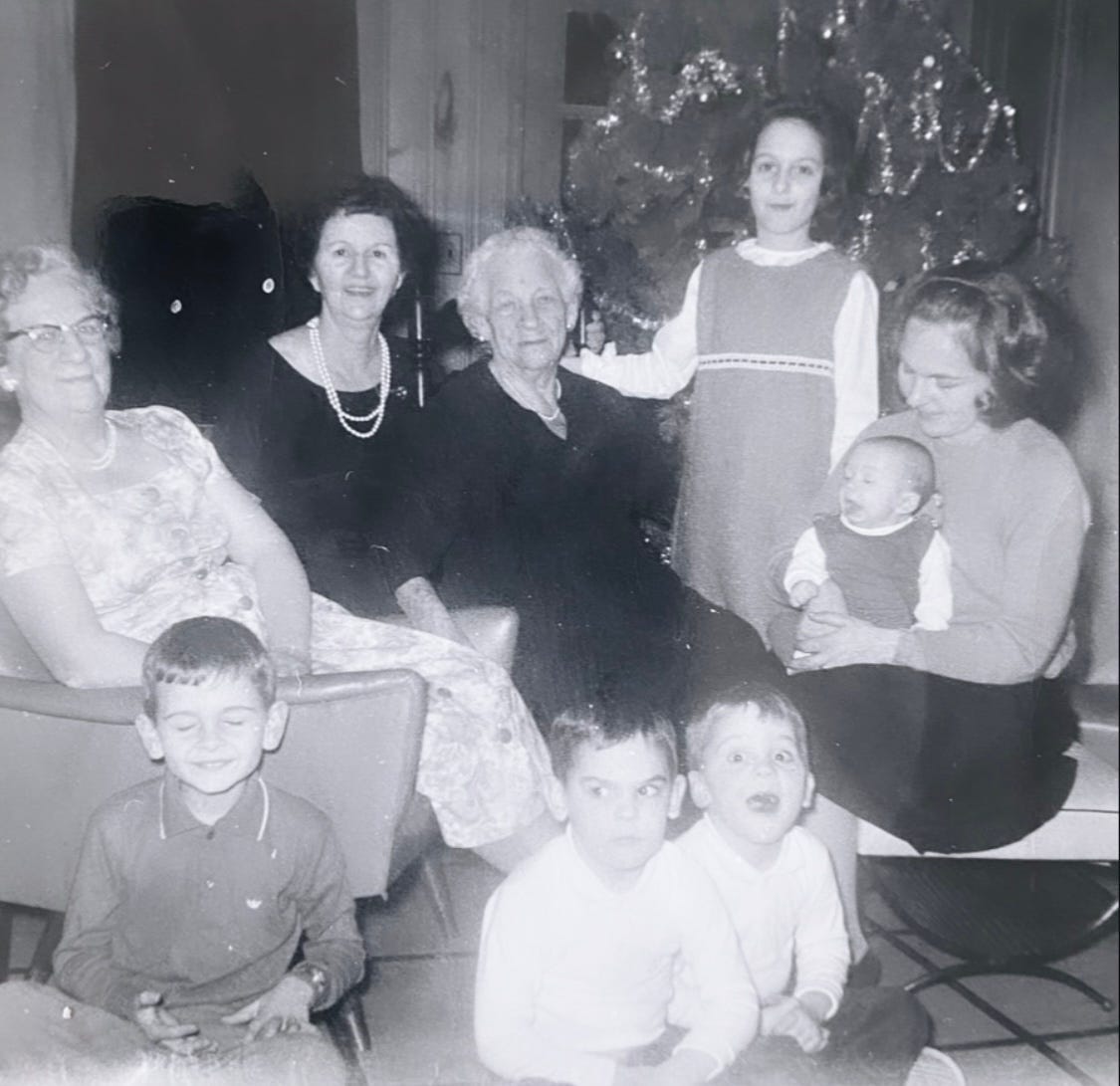
Okay, your turn:
How old are you? What are your favorite holidays? What are the foods and food aromas that trigger your nostalgia, instantly transporting you back to holidays past? Or maybe it’s not a holiday, but some other occasion, or a place where you used to enjoy spending time. And while we’re here…feel free to share favorite Thanksgiving recipes. (You can write them out or share links to where they live online.)
With big thanks to
. And to all of you—the most engaged, thoughtful, kind commenters I have ever encountered on the internet!! And thank you for all your support. 🙏 💝 I couldn’t do this without you.-Sari






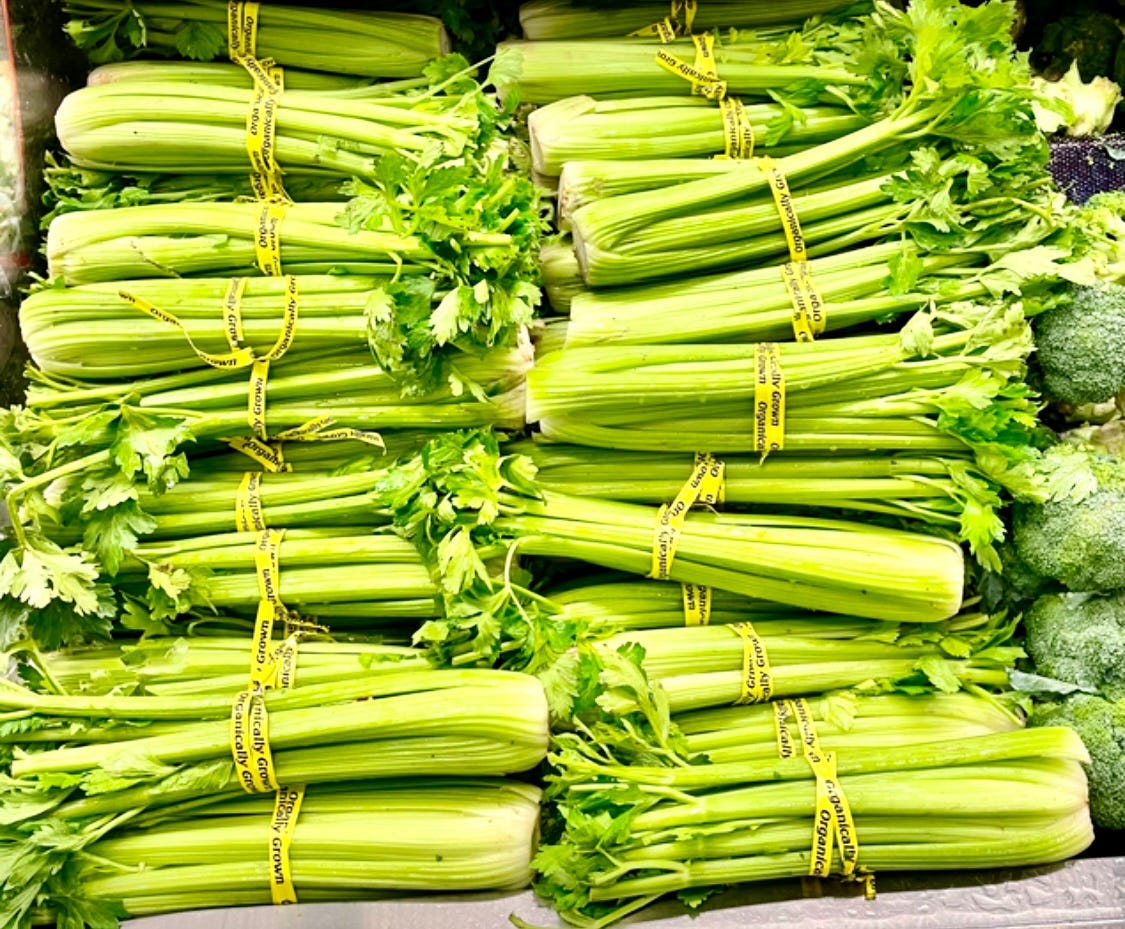
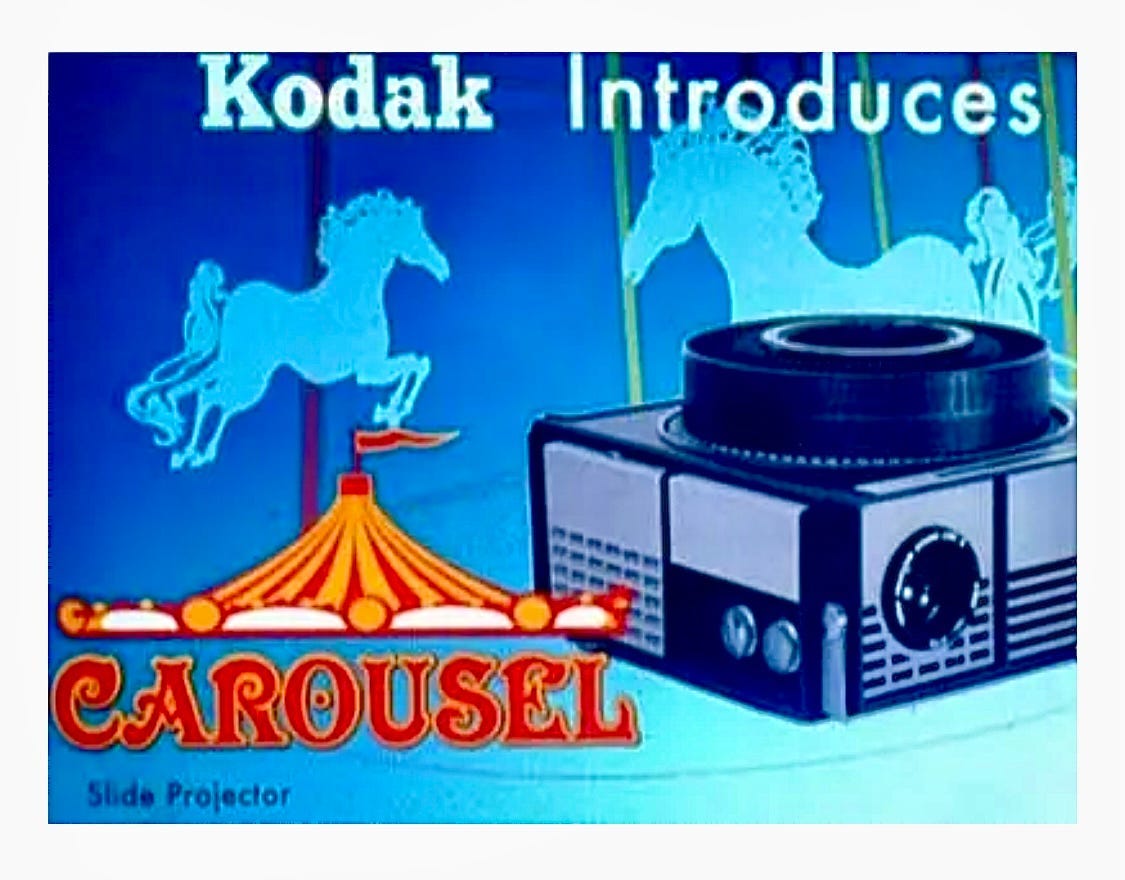
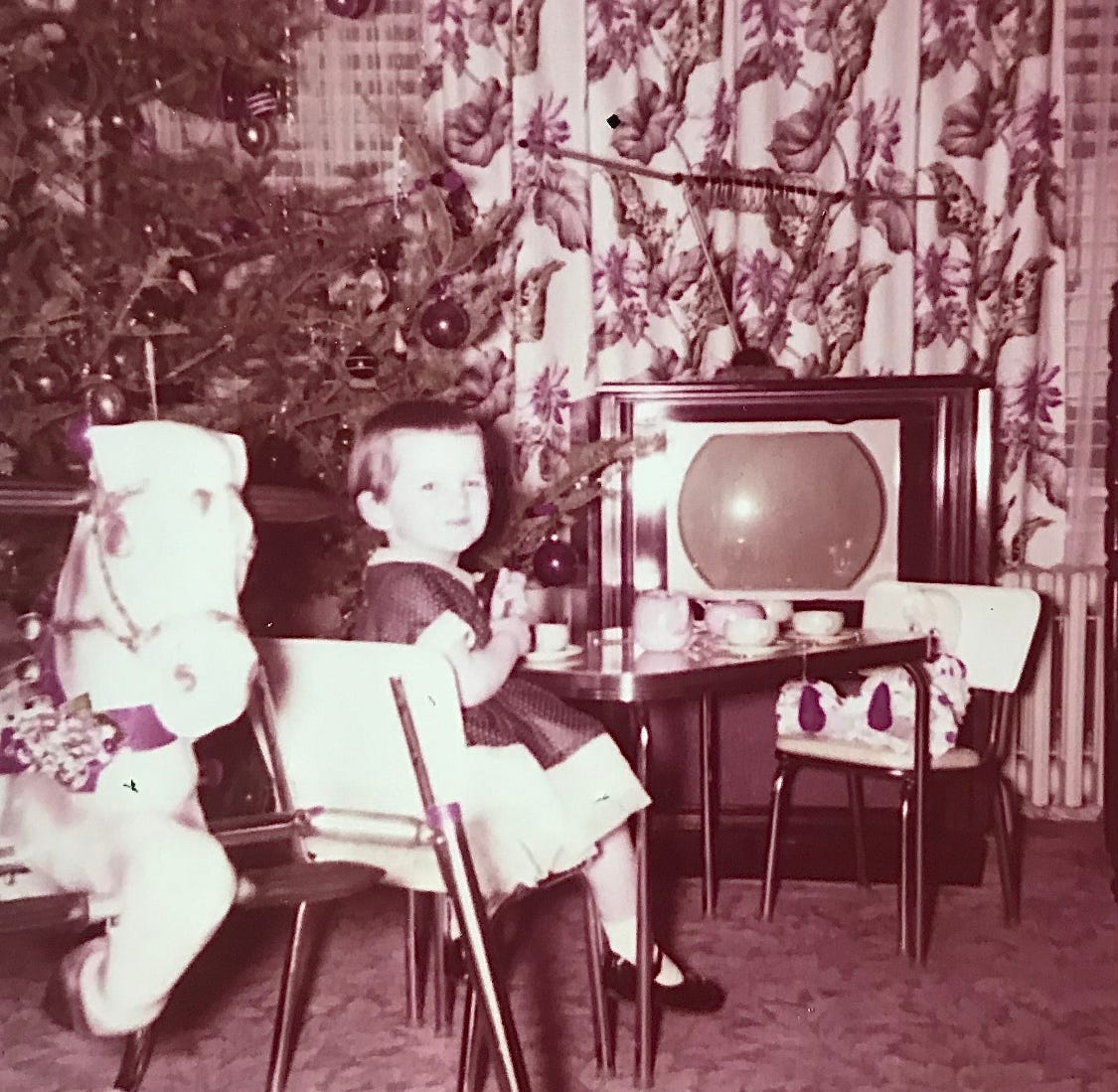
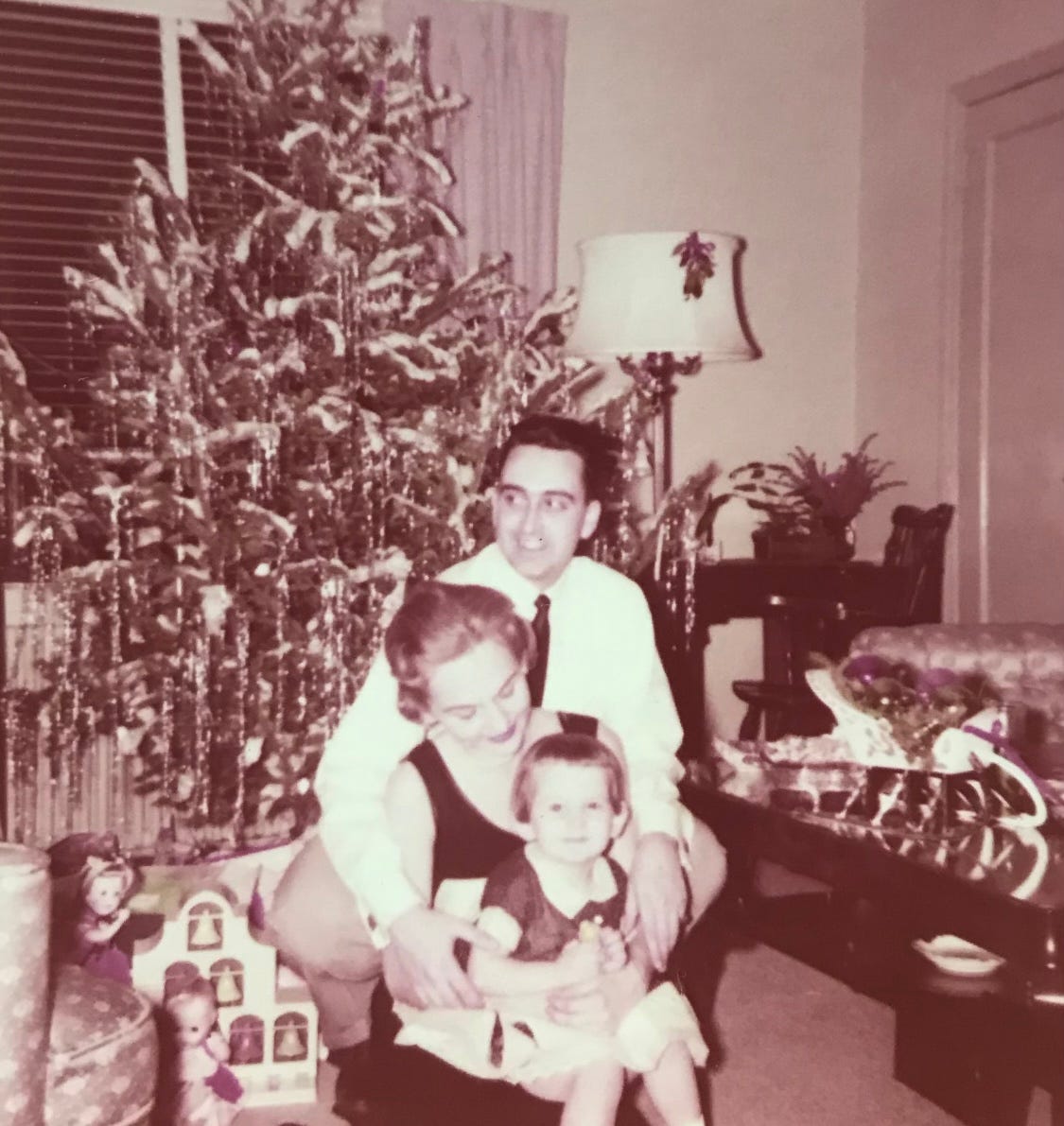
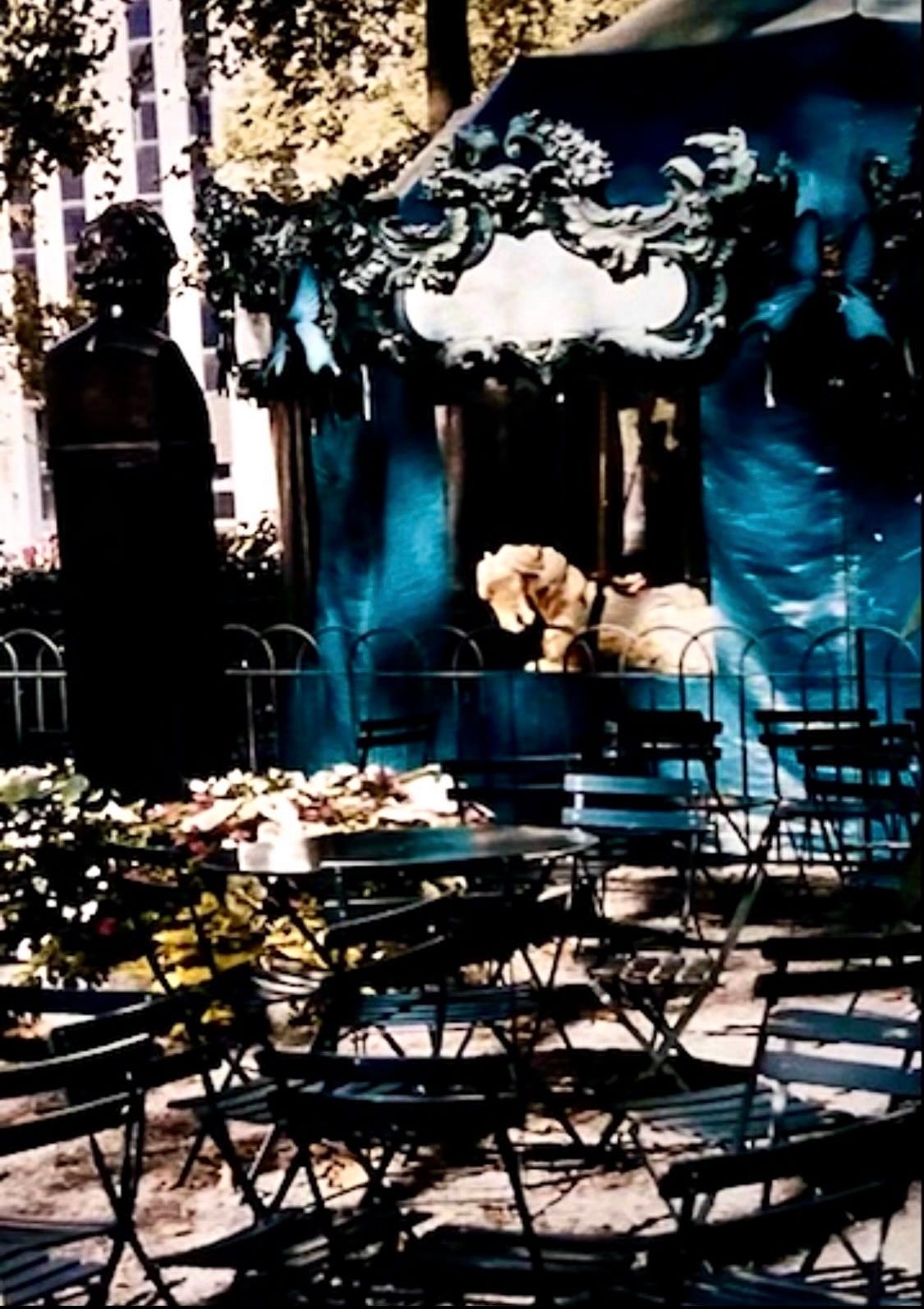

Sari, it’s an absolute pleasure and honor to be here on Oldster as a guest essayist, thank you so much to you and your wonderful readers!
Beautiful article! I loved it all especially the description of the Mad Men episode on The Carousel. I never watched that show and this makes me want to find it and watch it.
A few weeks ago I got to go to a Joni Mitchell concert in the Hollywood Bowl. Joni is now 80. No longer the fresh-faced, beautiful young girl with the crystal clear soprano. She’s been physically compromised by a brain aneurysm and her voice is deep and raspy from a lifetime of smoking and living. When she sang Circle Game and Both Sides Now and thousands of us joined her, I felt something that is not nostalgia but, perhaps, the opposite. It was gravitas. It was a deep knowing that we’re all “captives on the carousel of time”. And there is a power and a privilege in knowing what we know as we age. The losses, the aches, the memories, the joys, and the loves we have known make our unique life journey a beautiful treasure for today and tomorrow.